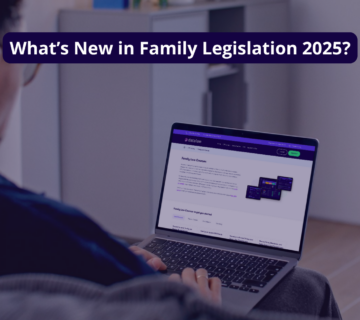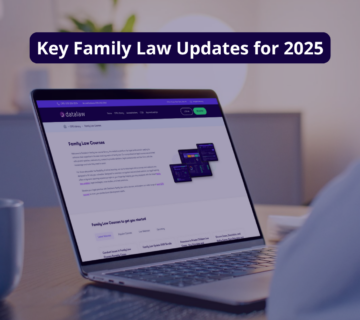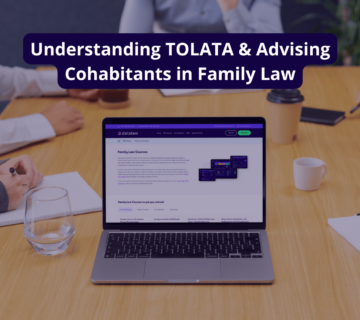In the complex landscape of family law, two significant areas often require legal professionals to navigate intricate legal processes and procedures: Financial Remedy Orders and Cohabitation Disputes. Both domains deal with financial settlements and property matters, but they each come with unique challenges and considerations. In this article, we will explore the essential aspects surrounding Financial Remedy Cases and the law and practice concerning Cohabitation Disputes. Additionally, we are excited to introduce Datalaw’s “Running Financial Remedy Cases and Cohabitation Disputes” course, a valuable resource that equips legal practitioners with the knowledge and skills necessary to excel in these critical areas of family law.
Download our free “Financial Remedy Orders and Cohabitation Disputes” E-book
Financial Remedy Cases: Unravelling the Complexity
Financial Remedy Cases, often referred to as ancillary relief or financial settlement, are a crucial component of family law. These cases involve the division of assets and finances between parties when a marriage or civil partnership dissolves. The goal is to ensure that both parties achieve a fair and equitable settlement, taking into account their financial circumstances, needs, and contributions during the relationship.
Key Aspects of Financial Remedy Cases:
- Financial Disclosure: Full and transparent financial disclosure is vital. Both parties must provide comprehensive information about their assets, income, liabilities, and expenses.
- Needs and Contributions: The court considers each party’s financial needs, the welfare of any children, and their respective contributions to the marriage or partnership when determining the division of assets.
- Maintenance and Capital Settlements: Financial orders may include spousal maintenance, child maintenance, lump-sum payments, property transfers, or pension sharing orders, depending on the circumstances.
- Consent Orders: Many financial remedy cases are resolved through consent orders, where both parties agree on the terms of the settlement. These orders are legally binding and provide certainty for both parties.
Cohabitation Disputes: Untangling Unmarried Partnerships
Cohabitation disputes arise when unmarried couples separate, and there is a disagreement over property, finances, or child-related matters. Unlike married couples or civil partners, cohabiting couples do not have the same legal protections, and their disputes often require a different approach.
Key Aspects of Cohabitation Disputes:
- Ownership of Property: Disputes commonly revolve around the ownership of property. Establishing who owns the property and to what extent can be a complex task.
- Contributions and Intent: The court considers financial contributions, such as mortgage payments and renovations, as well as the parties’ intentions regarding property ownership.
- Child Arrangements: Cohabitation disputes may also involve child custody and maintenance issues, where the welfare of the child is of paramount importance.
- Cohabitation Agreements: To avoid disputes, unmarried couples can enter into cohabitation agreements that outline property ownership and financial arrangements in advance.
Law and Practice in Action
Navigating Financial Remedy Cases and Cohabitation Disputes requires a deep understanding of family law, including recent legal developments and case law. Legal practitioners must stay current with evolving legislation and precedents to provide the best representation for their clients.
To equip legal professionals with the knowledge and skills necessary to excel in these areas, specialised courses and training programs are invaluable. We are pleased to introduce Datalaw’s “Running Financial Remedy Cases and Cohabitation Disputes“ course, a comprehensive and practical resource designed to empower legal practitioners with the expertise needed to navigate Financial Remedy Cases and Cohabitation Disputes effectively.
This course covers a wide range of topics, including financial disclosure, negotiation techniques, drafting consent orders, and handling complex cohabitation disputes. Whether you are looking to enhance your skills or stay up-to-date with the latest legal developments, this course is an invaluable asset to your professional growth.
In conclusion, Financial Remedy Cases and Cohabitation Disputes are critical areas of family law, each presenting unique challenges and legal considerations. Legal professionals must be well-versed in the law and practice surrounding these issues to provide the best possible representation for their clients. By staying informed and pursuing specialised training, legal practitioners can ensure that they are well-prepared to handle the complexities of these cases and achieve favourable outcomes for their clients.



